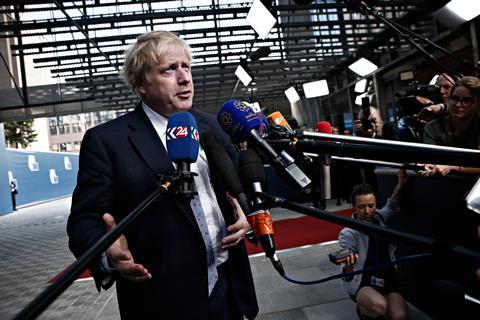It might seem all-consuming but negotiating Brexit is not the only major challenge confronting Boris Johnson in the opening months of his tenure as prime minister.

Figures released by the Bank of England and City economists revealed that GDP shrunk for the first time in seven years during Q2 2019. This shouldn’t set alarm bells ringing, but rather is a sure indication of the impact Brexit uncertainty has been having on the economy.
Of course, Britain remains an attractive place to headquarter a company or hold assets, but it’s still incumbent on the government to look critically at its economic policy and begin implementing policies that are likely to restore investor confidence in what is an uncertain time. The property market in particular has suffered from a period of stagnation. Consequently, more needs to be done to harness Britain’s immense potential in this vital sector and significant tax reform is an important weapon in the government’s policy arsenal.
During the Tory leadership contest, Boris Johnson stated that his first budget would include £20bn worth of tax cuts in an attempt to put “rocket boosters” under the economy. The bulk of this cut comes in the form of raising the threshold for the higher rate from £50,000 to £80,000. The Institute for Fiscal Studies (IFS) estimates that this would deliver a tax boost of almost £2500 a year to approximately four million people.

However, arguably more significant than Johnson’s proposed cuts are his wide-ranging reforms to stamp duty. This land tax has long been a controversial feature of Britain’s housing market and while the levy reportedly raises £1bn a month for the taxpayer, it’s widely considered a drag on market efficiency. The reform consists of two parts. The first is shifting stamp duty liability from the person buying the home to the person selling it. This is designed to increase the number of property transactions by lowering the upfront cost for prospective buyers.
Moreover, Johnson’s changes to stamp duty don’t end there. He has suggested scrapping the tax altogether on properties valued at below £500,000 and reducing the rate payable on homes valued at £1.5m and over, from 12% to 7%. According to analysis by estate agent Savills, Johnson’s plan would have meant that of property transactions conducted in 2018-19, an additional 300,000 would have been exempt from paying stamp duty.
The significance of this change cannot be overstated as it would remove one of the biggest impediments to completing a property purchase.
The government’s latest pronouncements on tax have shown that they are taking the issue of harnessing Britain’s economic potential seriously. However, I’d argue that they evince a degree of caution that the markets could do without; radical change is required and more is needed to truly reassure investors that the government is on their side. Consequently, the government should proactively seek to implement policies like tax relief for SME housebuilders.
With their floated proposals on income tax, freeports and changes to stamp duty, the government has begun to outline its economic agenda for the months ahead. As we near the Brexit departure date, I expect to see the government continuing to use taxation policy as a means of providing clarity in what is a defining period for the country’s economic future.
Paresh Raja is chief executive of Market Financial Solutions





























No comments yet